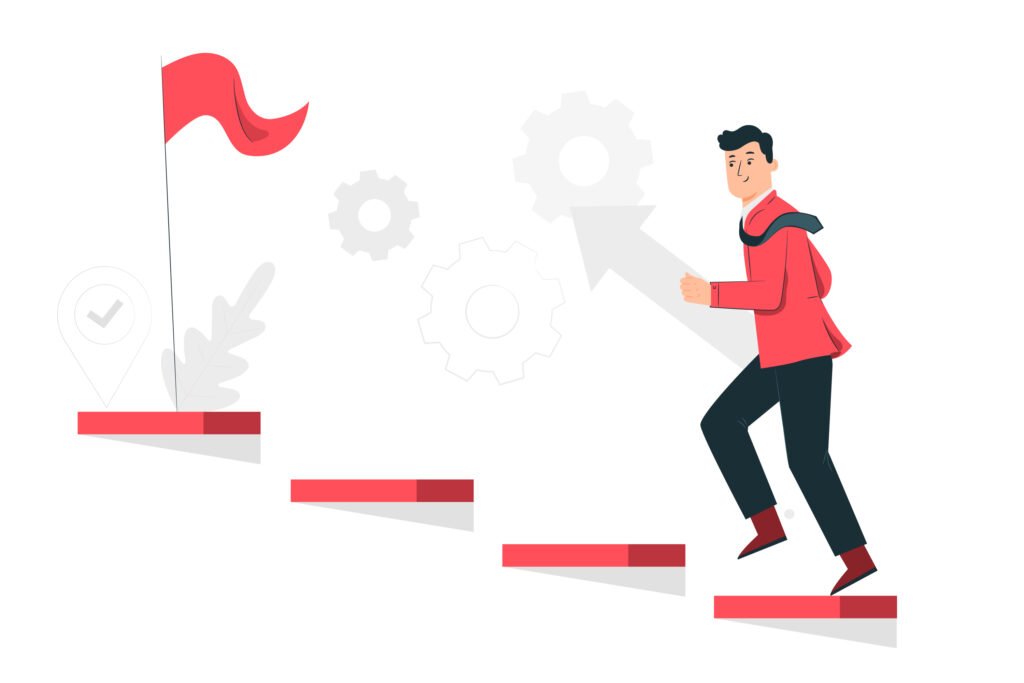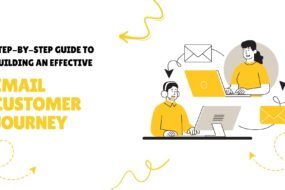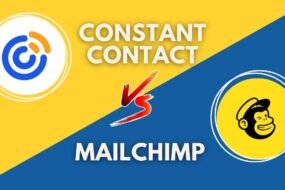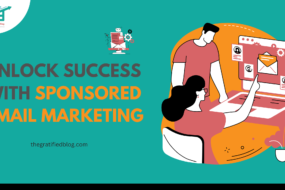
In the fast-evolving landscape of digital marketing, one avenue that consistently proves its worth is email marketing. As businesses strive to establish meaningful connections with their target audiences, the demand for effective email campaigns continues to soar. If you’ve ever considered harnessing this demand and turning your passion for marketing into a thriving business, you’re in the right place. Welcome to our comprehensive guide on “How to Start an Email Marketing Agency.”
This blog will explore the intricacies of launching and successfully running your email marketing agency. From understanding the dynamic email marketing landscape to crafting a business plan and assembling a stellar team to scaling your agency for long-term success, we’ll delve into every aspect of this entrepreneurial venture. Whether you’re an experienced marketer looking to venture out on your own or a newcomer eager to harness the extensive opportunities within email marketing, this guide is tailored to provide you with the insights and strategies needed to navigate the path toward establishing your email marketing agency.
So, buckle up as we unravel the secrets, strategies, and steps that will empower you to start and thrive in email marketing. Let’s turn your aspirations into a reality and begin the thrilling adventure of constructing a successful email marketing agency from the ground up.
But, Let’s understand the basics, i.e.,
What Is Email Marketing?
Email marketing is a focused digital marketing method where businesses send messages via email. These messages can include promotions, product updates, newsletters, or personalized offers. The goal is to make people aware of the brand, strengthen customer relationships, and encourage actions like purchasing or visiting a website.
Significance Of Email Marketing
- Cost-Effective Communication: Email marketing provides An economical method for businesses to establish connections with a diverse audience in contrast to conventional marketing channels. With minimal expenses, companies can engage with their target customers directly.
- Direct and Personalized Interaction: Emails allow businesses to communicate directly with their audience, creating a personalized experience. Tailoring content to specific segments helps build stronger connections and increases the likelihood of conversion.
- High Return on Investment (ROI): Email marketing consistently yields significant returns and delivers a high return on investment. Its measurable nature allows businesses to track open, click-through, and conversion rates, enabling them to refine their strategies for better results.
- Enhanced Customer Retention: Email is a powerful tool for customer retention. Regular communication, updates, and exclusive offers can keep customers engaged and loyal to a brand over an extended period.
- Automation and Scalability: Automation tools simplify the process for businesses to deliver precise and timely messages without constant manual intervention. This scalability is particularly beneficial for growing companies.
Current Trends And Statistics In The Email Marketing Industry

Personalization and Segmentation
- Hyper-Personalization: Tailoring content based on individual preferences and behaviors to establish a more individualized and pertinent experience.
- Segmentation: This involves dividing the audience into groups based on demographics, behavior, or preferences for targeted messaging.
Automation and AI Integration
- Automated Workflows: Using automation to streamline email marketing processes, from welcome sequences to post-purchase follow-ups.
- AI-driven Personalization: Leveraging artificial intelligence to analyze data and deliver personalized content dynamically.
Mobile Optimization
- Responsive Design: Ensuring emails are optimized for various devices, especially mobile, to accommodate the increasing number of users accessing emails on smartphones.
- Mobile-First Strategies: Designing campaigns with a mobile-first approach to enhance the user experience.
Interactive Content
- Interactive Emails: Incorporating quizzes, polls, and clickable features to boost engagement and interaction.
- Gamification: Introducing game-like elements to make emails more engaging and enjoyable.
Metrics and Analytics
- Advanced Analytics: Utilizing advanced analytics tools for in-depth customer behavior insights allows marketers to refine strategies.
- Focus on Customer Lifetime Value (CLV): Shifting from short-term metrics to assessing a customer’s long-term value to the business.
Now that you’ve grasped the fundamentals of email marketing, it’s time to delve into the detailed, step-by-step process of initiating your email marketing agency.
How To Start An Email Marketing Agency: A Comprehensive Step-By-Step Guide

Assessing Your Skills and Readiness
Before venturing into the realm of starting your email marketing agency, it’s crucial to undergo a thorough self-assessment. Recognizing your marketing, communication, and project management strengths provides a foundation for building your agency.
Equally important is acknowledging your weaknesses and paving the way for addressing or compensating for them. Whether it’s a solid analytical mind, creative flair, or interpersonal skills, aligning these attributes with the demands of the email marketing landscape is vital to success. Once your self-assessment is complete, it’s time to focus on the diverse skill set required to run a thriving email marketing agency.
Proficiency in email marketing strategies, data analysis, copywriting, and client management is paramount. Technical skills in utilizing email marketing platforms and analytics tools are essential, while leadership and team management skills become crucial as your agency scales.
Understanding the legal aspects, such as data protection laws, ensures ethical and legal operation. Bridging skill gaps is an opportunity for growth; explore training programs, webinars, and conferences. Establishing connections with industry professionals provides valuable insights, and consider building a well-rounded team through hiring or partnerships.
Market Research and Niche Selection
In laying the foundation for a successful email marketing agency, thorough market research is paramount. This involves understanding industry trends, analyzing competitors’ strategies, and delving into client expectations. Examining successful and unsuccessful case studies provides valuable insights, guiding your agency’s positioning and ensuring services align with market demands, creating a distinct edge.
Pinpointing your target audience and potential clients involves the next pivotal step. Tailoring services and marketing efforts becomes seamless when considering industries, company sizes, and geographic locations aligning with your expertise. Developing buyer personas allows a deeper understanding of client’s needs, enhancing marketing strategies and enabling the creation of compelling proposals tailored to resonate with the intended audience.
Choosing a niche within the expansive email marketing domain further refines your agency’s focus. Whether it’s e-commerce, B2B, or specific industries, this strategic decision allows specialization, transforming your agency into an expert in a distinct area. Niche selection influences not only your marketing approach but also shapes the services you offer and the overall identity of your agency.
Crafting a Business Plan
starting an email marketing agency begins with defining a clear mission and vision. This serves as the guiding beacon, outlining the values that will influence decisions and the impact the agency aims to make in the industry. Crafted carefully, this mission and vision statement creates a cohesive, purpose-driven environment that resonates with potential clients and team members.
Simultaneously, establishing short-term and long-term goals is fundamental for steering the agency toward success. Short-term goals provide actionable steps for immediate progress, while long-term goals shape growth. As a roadmap, these goals keep the agency focused and motivated, giving direction for achieving milestones like client acquisition or service expansion.
Ensuring the sustainability and profitability of the email marketing agency involves meticulous financial planning. Developing a detailed budget covering startup costs, operational expenses, and potential revenue streams is crucial. This process includes allocating resources for marketing, technology, and team development. Regularly revising the budget to adapt to evolving agency needs maintains a healthy financial trajectory, ensuring the agency’s long-term success.
Legal and Regulatory Considerations
Depending on your location, initiating the legal groundwork for your email marketing agency involves registering it as a legal entity, whether a sole proprietorship, LLC, or corporation. This formal step establishes your business and assures potential clients of your agency’s legitimacy, instilling confidence and safeguarding your assets.
Ensuring compliance with data protection and privacy laws is non-negotiable in email marketing. Handling sensitive customer data necessitates adhering to GDPR or CAN-SPAM Act regulations, depending on your region. Implementing robust data protection measures, informing clients about privacy policies, and ensuring legal compliance in marketing campaigns prevent potential legal issues and build client trust.
Creating clear and comprehensive contracts and agreements is pivotal for your agency’s success. These documents, detailing the scope of services, payment terms, project timelines, and other relevant specifics, set expectations and protect your agency and clients. Well-crafted contracts minimize misunderstandings, provide a legal framework for dispute resolution, and contribute to fostering a professional relationship with clients.
Setting Up Your Email Marketing Agency
Selecting the proper business structure significantly impacts your email marketing agency’s taxation, liability, and overall operations. Whether it’s a sole proprietorship, partnership, LLC, or corporation, each structure has advantages and considerations. Seek guidance from legal professionals or accountants to decide the most appropriate structure depending on your agency’s goals and circumstances.
Crafting a distinct brand identity starts with choosing a business name that aligns with your mission and resonates with potential clients. Develop a cohesive brand identity encompassing a logo, color scheme, and visual elements that convey professionalism and reflect your agency’s values. Consistent branding across all platforms enhances recognition and builds trust with clients.
Deciding on a physical or virtual office space involves weighing factors such as budget, team collaboration preferences, and client expectations. Choose a location that matches your brand image if opting for a physical office. For a virtual setup, ensure your team has the tools and communication platforms to facilitate seamless collaboration. The setup should align with your agency’s goals and working dynamics, whether physical, virtual, or a combination.
Building a Team
Building a successful email marketing agency involves identifying critical roles for its smooth operation. These roles may include email marketing specialists, content creators, data analysts, and client managers. Clearly defining each role’s responsibilities ensures comprehensive coverage of all aspects essential for executing successful email marketing campaigns.
Recruitment is a pivotal step in assembling a proficient team. Look for individuals with email marketing strategies, data analysis, and content creation expertise. Alternatively, consider outsourcing specific tasks to freelancers or specialized agencies, enhancing your team’s capabilities. This balance of in-house talent and external expertise allows your agency to remain flexible and adaptable to diverse client needs.
Beyond individual skills, fostering a collaborative and innovative team culture is critical for the long-term success of your email marketing agency. Encourage open communication, idea sharing, and continuous learning. Providing a supportive work environment that values creativity and initiative ensures a motivated and engaged team, contributing to the success of individual projects and your agency’s overall growth and reputation.
Technology and Tools
Success in the ever-evolving email marketing landscape hinges on identifying and utilizing the right tools and software. That includes email marketing platforms like Mailchimp or Constant Contact, analytics tools for campaign performance measurement, and CRM systems for client interactions. Incorporating A/B testing, personalization, and automation tools further enhances campaign effectiveness.
Choosing the right platforms for your email marketing agency is a strategic decision. Evaluate features, scalability, and costs while considering the size and requirements of your agency and clients. Opt for platforms with user-friendly interfaces, robust analytics, and seamless integration capabilities to ensure efficient campaign management and accurate data analysis, facilitating smooth collaboration within your team.
Automation is a game-changer in email marketing, streamlining processes and enhancing scalability. Implementing automation tools for tasks such as drip campaigns and personalized content delivery saves time and significantly improves campaign effectiveness. Automation is instrumental in managing large email volumes, ensuring timely communication, and adapting strategies based on recipient behavior.
Creating Service Packages
Crafting a successful email marketing agency involves developing various services tailored to meet diverse client needs. These services encompass campaign strategy development, content creation, list segmentation, A/B testing, and performance analytics. Offering specialized services like lead nurturing or e-commerce email marketing positions your agency as a comprehensive solution for clients seeking end-to-end email marketing support.
Establishing the right pricing strategy is fundamental for your agency’s success. Consider the scope of services, client budget constraints, and market competition. Pricing models, whether flat fees, hourly rates, or retainer-based arrangements, should be transparent and flexible to accommodate varying client needs. Clearly outlining each package and its inclusions builds client trust.
The key to securing potential clients lies in creating compelling proposals. Clearly articulate your agency’s unique selling points, highlight past successes, and align proposed services with the client’s goals. Tailor each proposal to address specific client pain points, emphasizing how your agency’s expertise provides practical solutions. A well-structured proposal communicates professionalism and sets the stage for a successful partnership.
Monitoring and Adapting to Industry Changes
Success in the dynamic field of email marketing hinges on staying informed about the latest trends and best practices. Regularly monitoring industry publications, attending webinars, and participating in conferences ensures your agency remains ahead by providing clients with cutting-edge solutions and outpacing the competition.
A commitment to continuous learning is fundamental for the growth of your email marketing agency. Motivate your team to participate in continuous professional growth through workshops, courses, and certifications. Investing in their skill development enhances capabilities, positioning your agency as a leader in delivering up-to-date and proficient services.
A successful email marketing agency’s hallmark depends on its ability to adjust to industry changes and client needs quickly. Regularly reassessing strategies in response to shifts in consumer behavior, technological advancements, or industry regulations ensures your agency remains a valuable and indispensable partner, in tune with your client’s changing requirements.
Pro Tip: Scaling Your Email Marketing Agency

Identifying Opportunities for Growth
Scaling your email marketing agency requires a keen eye for identifying growth opportunities. Analyze market trends, assess client feedback, and stay In harmony with the requirements of your target audience. Look for untapped markets, emerging technologies, or gaps in the services offered by competitors. Identifying growth opportunities provides the foundation for expanding your agency’s reach and influence in the email marketing industry.
Scaling Operations, Team, and Services
As your agency grows, scaling operations, teams, and services becomes imperative. Evaluate your internal processes and systems to ensure they can accommodate increased demand. Scale your team by hiring additional talent or outsourcing specific tasks to meet growing client needs. Expand your service offerings strategically, considering new niches, advanced technologies, or complementary services that align with the evolving requirements of your client base.
Diversifying Revenue Streams for Long-Term Success
Implementing diverse revenue streams ensures your email marketing agency’s long-term success and stability. While offering core email marketing services, explore opportunities to provide additional services or products that complement your existing offerings. This could include consulting, training programs, or even developing proprietary tools. A diversified revenue portfolio enhances financial stability and positions your agency as a comprehensive solution provider in the competitive marketplace.
FAQs
Q1. What skills are essential for starting an email marketing agency?
Essential skills include proficiency in email marketing strategies, data analysis, copywriting, and client management. Technical expertise in email marketing platforms, analytics tools, and leadership and team management skills are crucial.
Q2. How can I choose the right business structure for my email marketing agency?
Choosing the proper business structure involves considering taxation, liability, and operations. Seek guidance from legal professionals or accountants to determine whether a sole proprietorship, partnership, LLC, or corporation aligns with your agency’s goals and circumstances.
Q3. What steps are involved in creating a compelling brand identity for my email marketing agency?
Crafting a compelling brand identity involves selecting a business name reflecting your mission and creating a cohesive brand identity with a logo, color scheme, and visual elements. Consistent branding across all platforms enhances recognition and builds trust with potential clients.
Conclusion
Now that you know how to start an email marketing agency, your decision is yours. Remember, there will be challenges, but as you move forward, you’ll find solutions.
If you still have any questions related to the blog, then please leave them in the comment section. Feel free to ask any questions; we’re here to help!
Thanks for reading 🙂








No Comments